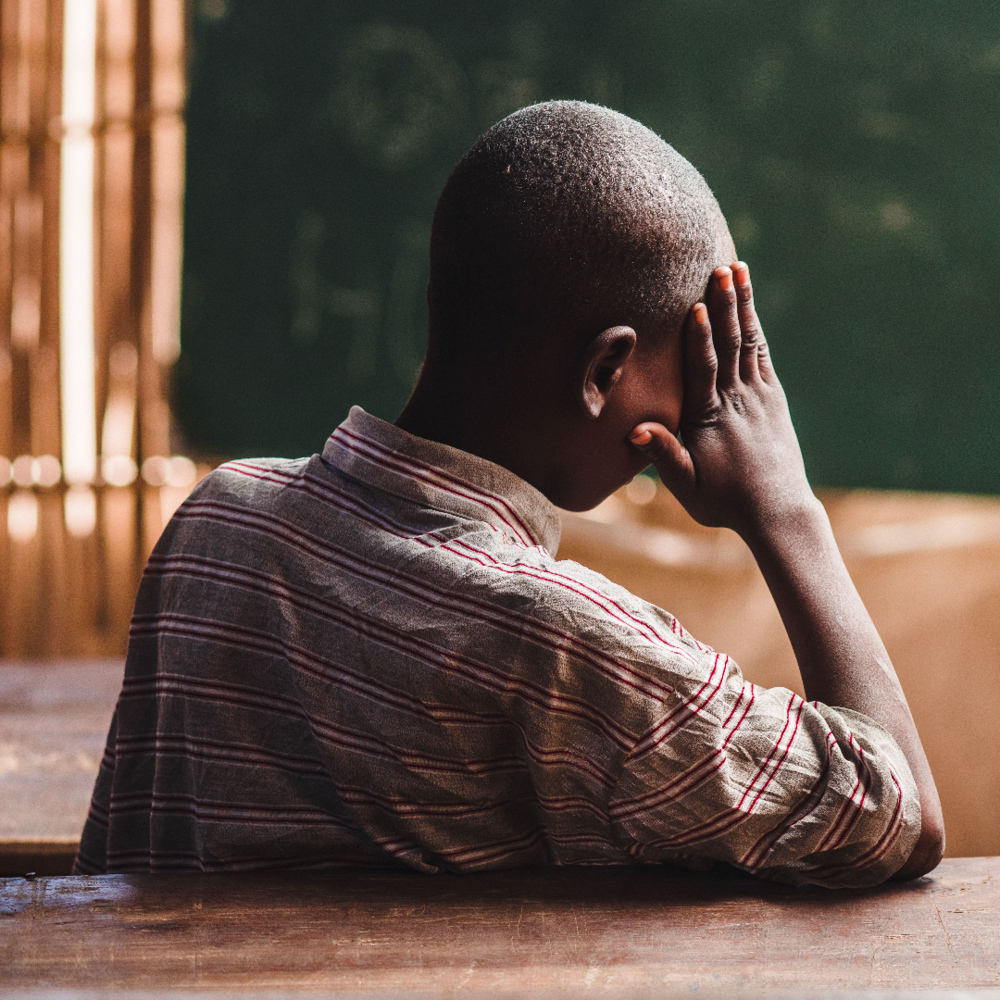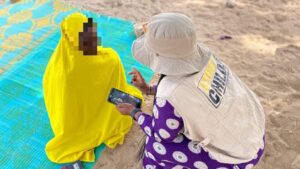Standing up for Children’s Rights: Why Street Child Supports Red Hand Day
What is Red Hand Day?
Each year, 12th February marks the International Day against the Use of Child Soldiers. Rights groups and campaigners around the world use this day, now known as Red Hand Day, to highlight the ongoing recruitment of children into armed forces and groups – in an effort to stop the abuse. Red Hand Day began 20 years ago when an optional protocol outlawing the enforced recruitment of children under the age of 18 in armed conflicts came into place at the UN. This protocol has been accepted by 150 governments around the world. However, armed groups continue to engage and use children as young as 9 years old as recruits, and there are an estimated 250,000 children who are currently enlisted by armed groups today. Street Child stands with the Red Hand Day as even one child enlisted is one too many.

What are ‘Child Soldiers’?
The term ‘Child Soldiers’ is commonly associated with an image of young boys with guns. However, this stereotype is unrepresentative. Street Child and other international organisations use the term ‘Children Associated with Armed Forces and Groups’ (CAAFAGs) instead. This is because not all CAAFAGs are recruited as fighters, or ‘soldiers.’ Many are recruited as cooks, messengers, or spies. So too, one third of child soldiers are girls. Young girls face not only the same brutal treatment as young boys but are often victims of sexual abuse and forced marriage, leaving many with HIV, AIDs, and unwanted pregnancies.
When and if CAAFAGs return home from the armed groups they continue to face adversity. Most find their villages destroyed or families killed due to conflict, leaving many orphaned and alone without a support system. These children face ongoing stigmatization and discrimination, especially when accessing basic services, including education. For those who are able to find their villages and families, they’re often rejected by their communities and are unable to integrate, leaving them isolated.
A spotlight on Street Child’s CAAFAG work
Street Child’s mission is to ensure all children are safe, in school, and learning. Street Child are a member of the Reintegration Technical Working Group Chaired by UNICEF and as part of Street Child’s purpose, we have been working with CAAFAGs in countries such as Nigeria since 2018 to help these children reintegrate safely into their communities.
The ongoing crisis in North-east Nigeria has resulted in the loss of lives, livelihoods, and resources, as well as the ongoing recruitment of children into armed groups. Case management of these vulnerable CAAFAGs has been identified as a significant gap in the region’s current response, which is where organisations like Street Child can help. Street Child focuses on four key areas to ensure a holistic and sustainable approach to reintegrating CAAFAGs into their communities. These are:
-
Social reintegration
-
Economic reintegration
-
Livelihood’s support
-
Alternative care placement
Social reintegration is achieved through strengthening existing community-based mechanisms. Peacebuilding and conflict resolution is encouraged through training community leaders on child protection, hosting positive parenting classes, and establishing child friendly safe spaces. Caseworkers from within the community are trained in mental health and psychosocial support services (MHPSS). This means children have safe spaces within their own community to discuss the trauma they have experienced. The objective of utilising community-based mechanisms is to increase communities’ acceptance of CAAFAGs, and as a result children who return to their communities from armed groups will face fewer barriers when reintegrating into their communities.
Economic reintegration and livelihoods support is an important factor in allowing CAAFAGs to become economically active and contribute to their communities through earning their own incomes. This is particularly important for those who are orphaned. This is achieved through mentorship and training, including in skills such as sewing and cooking, and equipping them with the correct equipment and cash loans to set up their own businesses. In Borno state, for instance, 505 CAAFAGs received economic reintegration support as part of Street Child’s child protection programme.
Alternative care placement is integral for children who return to their communities and can’t find their parents. Street Child ensures there are suitable guardians in place to care for these children. We support caregivers through cash grants to set up their own businesses. Through increasing the household income, we are ensuring the child is looked after and as a result contributes to the overall wellbeing of the child. Simultaneously, Street Child work alongside local partners on family tracing and reunification.
Most importantly, Street Child does not focus on CAAFAGs in isolation due to the unintended impact on the community this may have. For example, it may create a perception that non-combatant children are not at risk and/or the notion that children who have been associated with armed groups receive special treatment. For this reason, all activities include vulnerable children who have been impacted by conflict, CAAFAGs or otherwise.
At Street Child we will not stop until every child is safe, in school and learning. Today we stand with the Red Hand Day campaign to end the recruitment of children into armed forces.
How can you help?
You can help support the work Street Child does with CAAFAGs and raise awareness of the international issue of children being recruited into armed groups by:
-
Sharing this blog with a family member or friend
-
Donating to Street Child via our website
-
Fundraising for Street Child by taking on a challenge event such as our Sierra Leone Marathon in June this year!




